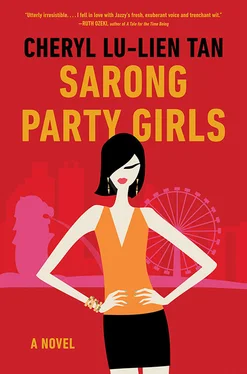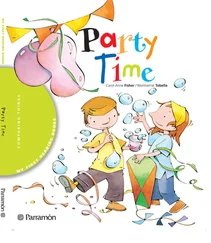After I started walking away toward my block, I looked back and saw him lighting another ciggie and slowly checking his phone. He wasn’t even looking up at me. Since that first time that I met him at the bus stop way back in primary school, he always super act-cool one. Fucker doesn’t need anybody.
I didn’t want to go home though—with my luck my mum would actually be cleaning the flat that day and guniang here will have no choice but to help. Imo didn’t live far away from me though—two bus stops—so I started walking to the bus stop. Normally, of course I don’t take the bus—come on, no matter how good the air-con or seat cushions are, you are still sharing that nice air-con and seat cushions with all the types of people who have no money to buy a car or take a taxi. But Imo’s house, two bus stops? Can endure a bit lah.
Imo had already warned me that she was helping her mum clear the storage room so if I come by, I’d better help out. This one, I don’t really mind—of all the aunties out there, I actually liked Imo’s mum the best. It’s true that now she is damn boring—looks like an auntie, acts like an auntie; whole life long doesn’t do much except cook, watch TV serials and crochet at home when Imo is not there. But her life before Imo and Uncle—from some things she says now and then about going to this club or that party, we all imagined that she probably was damn happening!
Before we found out about Imo’s dad’s first family, we didn’t think much of how auntie spent her time. In Singapore, so many men travel for work or get posted overseas but leave their families behind, it’s no big deal to see mums and aunties sitting at home with nothing to do except wait. But since we found out about Uncle’s first wife, every time I see auntie sitting at home cleaning the already-quite-shiny altar for the fifth time that day or rearranging the framed photos of Imo on the living room wall again, I can’t help but feel a bit sad lah. Who wants to always be number two?
The bus doors opened, and I stepped out of the super power air-con into the sticky morning. It wasn’t even noon yet but I already felt as if someone had thrown a gummy blanket of steam over my face. Even though Imo didn’t live far from my place, the two neighborhoods could not be more different. Looking out the smudged windows of the bus, you can always see it. First, in my government-housing neighborhood, there are the skinny streets jammed tight with white blocks and blocks of flats; trees, each one a perfectly rounded blur of green zooming by, interspersed by rows of dusty old hardware stores, provision shops and kopitiams and then, one or two gigantic buildings that on their own look quite boring lah, except that they’re wrapped all around with flashing neon Chinese characters and words like HENNESSY and RéMY MARTIN. Then, slowly slowly the roads get a bit wider, the buildings a bit shorter, the puffs of green get bigger and bigger, the trees fuller and darker.
By the time the bus doors open outside Waikiki Towers, there’s no neon anywhere around. Even Imo’s bus stop is atas—a cube of shiny metal and clear glass. Every time I get off here I always think—the government damn toot lah. If you are going to make something so shiny, atas and clean, why not make it the front window that bus drivers have to look out of instead of some fucking high-class bus stop that people in this neighborhood never use anyway because everyone has at least one Mercedes in their covered car park?
Even though the security guard station to Waikiki Towers is right next to the bus stop, walking into Imo’s building is quite terok, especially this close to noon. The driveway to her building is damn fucking long for starters. Then, it’s also obviously not a space designed for people to actually walk—after all, everyone here has a car. The pavement got not much space one—some more, got no shade! But once you get to the lobby, everything is all OK again. Pure white marble everywhere, everything is always clean, the air-con is always power. The first time I visited Imo, I remember thinking that this place was a bit strange—if it’s called Waikiki Towers, then why is it not beachy like Hawaii? Back then, we were all still in primary school but Imo already knew what she wanted to do in life.
“Aiyoh,” she scolded me, “you are the toot one lah. Hallo, Waikiki is not just stupid stuff like palm trees, beaches and bikinis. Those kinds of things—excuse me, even low-class towns in Malaysia also have! It’s not special one. No, what’s special about Waikiki is all the shopping there—how come you don’t know this? Japanese tourists and people from all over the world go there to buy branded names and all. Apparently there’s even one shopping center in Honolulu that’s so big that the corridors are bigger than Singaporean roads. And in the center of it all there’s a four-corner walkway—north, south, east, west, each one has a big store. Louis Vuitton one corner, Gucci, Prada and Chanel on the other three.
“I tell you,” Imo said, her voice suddenly turning less fierce, “one day, I will go to the real Waikiki and visit all four corners.”
Imo’s door was already open by the time I reached the twenty-first floor and I could see that auntie had set out cold packets of barley water on a plastic tray by the foyer for us. Visiting Imo is always quite fun lah, since auntie always takes care of us like this. (When anyone visits our flat, they’re lucky to get even a hallo from my ma or pa. Want some water or soft drinks? Please. I will be the idiot fetching it from the kitchen—or even worse, being sent downstairs to NTUC to buy some for my guests because there’s nothing in the house. So yah, people know that if they get thirsty in my house, they can go ahead and wait until tomorrow.)
“Hallo!” I heard Imo say from the dining room. “In here.”
Old photos were scattered all around the dining room table—I could tell they were quite old because a few of them were square, with that crinkly white border all around the picture. Most of them were faded rectangular ones though—I could see that they were mostly filled with people, not scenery. Before I could look closely at any of them though, Imo waved me over, quickly turning the big photo she was holding facedown on the table.
“I bet you you’ve never seen this before,” she said, smiling. “Ready?”
After waiting a moment for me to come and sit down next to her, Imo turned the photo over. At first, I didn’t quite understand what I was looking at. It was some glamour head shot, like those you see in that wall of frames outside KTV lounges or cheap Chinese nightclubs. From the haircut, I could see that the photo was from the 1980s—shoulder length, layered tight curls, a bit like old TV show Dynasty . Since it was a head shot, you couldn’t see much of the dress except that it was sparkly and red, with silver sequins all around the neckline. And the makeup was equally fierce. Glittery glittery type—and greenish-blue eyeshadow!
“You show me this for what?” I asked.
Imo just laughed, handing me the photo. “Aiyoh,” she said, “you blind is it? Look closer.”
I held the photo closer to my eyes, squinting a bit so I could see it more carefully. Puffy hair, pencil-thin eyebrows—the old-fashioned kind where the hair is plucked until there’s almost nothing there and you can really see the dark pencil lines—and eyelashes so thick, long and dark that even if you looked at this person from two floors up you confirm can tell it’s all fake. But the eyes… and maybe the nose? There was something a bit familiar about them, even if the dark red glossy lips didn’t quite seem to match the face that popped into my mind. I looked at Imo, squinting at her eyes and her nose and then looked back at the photo.
Читать дальше











